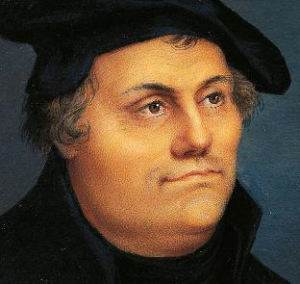 Almost ten years ago, internationally regarded Luther scholar Timothy Wengert said,
Almost ten years ago, internationally regarded Luther scholar Timothy Wengert said,
As Luther fans the world over are already gearing up for the celebration in 2017 of the 500th anniversary of their posting [i.e. the Ninety-Five Theses] on 31 October 1517, too often the celebrations will focus on Luther’s break with Rome or his Reformation breakthrough rather than on Luther’s own stated reason for the dispute: pastoral care for his flock in Wittenberg (“Introducing the Pastoral Luther” in Wengert (ed.), The Pastoral Luther: Essays on Martin Luther’s Practical Theology (Lutheran Quarterly Books; Eerdmans, p. 5).
Vose Seminary will commemorate this anniversary with a mini-Conference on The Pastoral Luther. Conducted on October 30, four papers will be presented as follows:
- Dr Peter Elliott (Perth Bible College): The Pastoral Roots of Luther’s Reformation
- Dr Michael O’Neil (Vose Seminary): Freeing Salvation: Luther’s Pastoral Theology
- Ps Matthew Bishop (Bethlehem Lutheran Church Morley): Of Good Comfort: Luther’s Pastoral Letters to the Depressed
- Dr Brian Harris (Vose Seminary): Luther as Leader
I am very much looking forward to this event. If you are in Perth, perhaps you can make it along.
For details and registration, go to:
https://www.trybooking.com/book/event?eid=321641
I’ve often wondered if seminarians read academic history or if they draw completely from a different literature. Luther-centered historiography dropped out of fashion from academia by the 1990s. It’s almost like Vose Seminary is still in the days of Heiko Obermann (yes, Luther: Man between God and Devil was a great read, I admit).
Some good books that have updated the historiography include: Eamon Duffy’s Stripping of the Altars, which challenges the narrative of a decisive break with the past, and also his Voices of Morebath: Reformation and Rebellion in an English Village, a brilliant study of how and what “reformation” meant at a local level in terms of praxis. Also read Christopher Boyd Brown’s Singing the Gospel: Lutheran Hymns and the Success of the Reformation, an amazing piece of work that reconstructs the pace, mood, nature of change through textual study of musical conventions.
Scholars have begun to realize for a long time that Luther was much more a product of his time than some genius that “catalyzed” (the word you chose) the reformations. You can make the comparison yourself. Does the picture that Obermann paints ring truer, or something like Brown or Duffy? Most would say the latter.
Hmm, I must have used “catalysed” in another post, did I? No, I quite agree that there was both continuity and discontinuity between Luther’s reformation and what preceded. Still, as you may have noted in my reflections on 1 Samuel 3, history is not only a matter of “conditions and contexts” but “characters” as well – though I acknowledge that the context of those reflections was itself predicated on an understanding of the providential activity of God.
Thanks for those book recommendations. I will check our library. I am not a history or Luther specialist, though I do enjoy church history. At school history was my favourite subject, and so when I do theology I inevitably take a historical approach. I do teach an entry-level overview of church history and the last time I taught it, I found myself very attracted to the medieval world, probably because I knew far less about that period than the patristic or reformation periods (and again, I do not consider myself an expert in either of those periods). I have bought several (overview) volumes by Christian and secular historians on the medieval period in preparation for the next time I teach the unit. I also recently bought Eamon’s “Reformation Divided: Catholics, Protestants and the Conversion of England” though I haven’t read it yet. I will look for Voices of Morebath – it sounds fascinating.